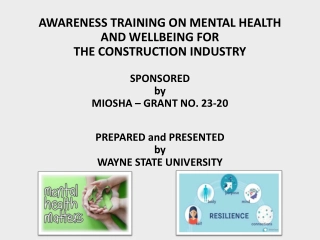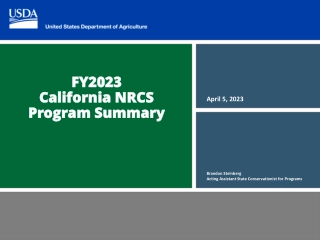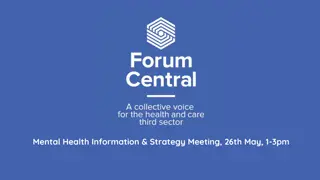
Epilepsy Quality Improvement Programme at Hampshire Hospitals NHS Foundation Trust
Discover how Hampshire Hospitals NHS Foundation Trust aims to improve the care and support for epilepsy patients through their mental health and neurodisability program. Learn about their project team, goals, and strategies to enhance services for children and young people with epilepsy, including neurodevelopmental and mental health concerns.
Download Presentation

Please find below an Image/Link to download the presentation.
The content on the website is provided AS IS for your information and personal use only. It may not be sold, licensed, or shared on other websites without obtaining consent from the author. If you encounter any issues during the download, it is possible that the publisher has removed the file from their server.
You are allowed to download the files provided on this website for personal or commercial use, subject to the condition that they are used lawfully. All files are the property of their respective owners.
The content on the website is provided AS IS for your information and personal use only. It may not be sold, licensed, or shared on other websites without obtaining consent from the author.
E N D
Presentation Transcript
RCPCH Epilepsy Quality Improvement Programme October 2022 May 2023 Mental health and neurodisability support Hampshire Hospitals NHS Foundation Trust RCPCH Epilepsy Quality Improvement Programme project team: Dr Gabriel Whitlingum, Consultant in Paediatric Neurodisability Dr Michelle Medalla, Associate Specialist Paediatrics and Epilepsy Paediatrician Dr Danielle McLymont, Principal Clinical Child Psychologist Epilepsy12 national audit results are not yet included within this case study until the publication of cohort 5 in September 2024.
Mental health and neurodisability support Hampshire Hospitals NHS Foundation Trust Project aim To improve our knowledge about the wider needs of 10 patients with epilepsy under the care of the BNHH paediatric epilepsy team by April 2023. Background The neurology/neurodevelopmental expertise, epilepsy nurse specialists, and highly skilled clinical psychologists. The service works within an integrated child health department, including neonatal, general, community/paediatric neurodisability services, medical, and nursing teams, including special school nursing. Children and young people with epilepsy have a significantly increased risk of developing emotional, learning, mental health, and behavioural difficulties compared to their peers and other children with chronic health conditions. team supports a multidisciplinary epilepsy service comprising epilepsy paediatricians with epilepsy and paediatric Outreach is available for joint paediatric neurology clinics from their tertiary centre in Southampton, who have the skills to identify, evaluate, support, or signpost to CAMHS additional mental health needs and neurodevelopmental conditions such as intellectual (learning) disability (LD) or autism spectrum disorder (ASD). The Child and Young Person Epilepsy Concerns Checklist (CHECC) was developed with input from parents, epilepsy charities, and professionals, including paediatric neurologists, neuropsychiatrists, psychologists, epilepsy nurses and general and neurodisability paediatricians. Three different versions of the checklist were created (parent/carer, education, and young person versions). Different questions were included in each version. All checklists had a specific space to set their top three goals. Checklists were received from education professionals for 41 patients. CHECC aims to facilitate information sharing between education and epilepsy services to identify concerns relating to epilepsy, neurodevelopment, and mental health. It also allows professionals to confirm the support that is in place, such as special educational needs provision. CHECC also serves to highlight areas that require further evaluation, such as LD, ASD, attention deficit hyperactivity disorder (ADHD), and developmental coordination disorder (DCD).
Mental health and neurodisability support Hampshire Hospitals NHS Foundation Trust Area of focus This project was chosen to develop Hampshire Hospitals (HHFT) epilepsy service across two DGH hospital sites because the Trust has a different service provided, i.e., different historical funding patterns. Royal Hampshire County Hospital (RHCH) had begun trailing the use of this measure to help provide better care to their epilepsy patients. The hospital has some psychology input (0.2 WTE) for the assessment of children with epilepsy (including cognitive assessments); Basingstoke and North Hampshire Hospital (BNHH) does not. There are regular epilepsy service meetings with HHFT, where the enhanced service is discussed at RHCH, and it was decided as a team that it was important to begin to replicate the work being done at RHCH at BNHH. In response to the Epilepsy12 audit results, the service team planned enhanced service by introducing an epilepsy nurse to HHFT for BNHH in 2019 to capture the needs of BNHH children and young people with epilepsy whose needs were unknown or uncaptured.
Mental health and neurodisability support Hampshire Hospitals NHS Foundation Trust
Mental health and neurodisability support Hampshire Hospitals NHS Foundation Trust
Mental health and neurodisability support Hampshire Hospitals NHS Foundation Trust
Mental health and neurodisability support Hampshire Hospitals NHS Foundation Trust Changes The project aim was to implement the same processes they have been using to run their clinics in Winchester, within the Basingstoke hospital site. Patients from both epilepsy services are seen by Trust psychological services within two pathway streams. The first pathway is for patients who need support with psychological distress and are referred to general paediatric psychology. The second pathway is for patients who have complex needs and have more difficulties in terms of learning or neurodevelopmental difficulties and are referred to the Trust s neurodisability consultant twice a month, where children are jointly seen together. The care provided includes follow-up assessments, monitoring of medications, and physical check-ups. The pathways within Basingstoke do not exist in the same format for their patients. The psychology team discusses the referrals with the consultant who has completed the form with the family, then appropriately refers the child to the psychology service for support, where they would decide on the best pathway to address the needs of the patient. The team has decided to test a questionnaire on 10 children, which will work as a screening tool to determine the patients that should be referred for therapeutic support or those that require advance support from CAMHS due to complex needs that go beyond the remit of the psychology team. Currently, this project has been a single-person pilot where all data has been collated from one hospital site. The purpose of joining the EQIP was to spread from one clinician to the whole epilepsy team at a different hospital site. It has been difficult for the cross-site team to engage children and young people in collating feedback on or sending back the questionnaire; therefore, the team has liaised with the epilepsy charity Young Epilepsy to support them in this task. Young Epilepsy will create a working group with their children and young people in the epilepsy cohort. Examples of what the cross-site team has learned about their project since joining the EQIP include getting a better sense of how many children within their service need additional support and the ability to scope out who these children are and what are their needs.
Mental health and neurodisability support Hampshire Hospitals NHS Foundation Trust Changes A business case has been submitted to their commissioners that includes documentation on the needs of this group of children and how much more psychology time is required to support them. Additionally, the tool has provided more involvement from schools and highlighted important information on issues that would not have necessarily been uncovered, providing a more holistic approach to the care of the child rather than just being focused on the medical. Experiencing a broader perspective of the child and the dynamics within the family as well as in the school.
Mental health and neurodisability support Hampshire Hospitals NHS Foundation Trust Methods The CHECC measure was developed with input from parents, epilepsy charities, and professionals, including paediatric neurologists, neuropsychiatrists, psychologists, epilepsy nurses, general and neurodisability paediatricians. Three different versions of the checklist were created (parent/carer, education, and young person versions). Different questions were included in each version. All checklists had a specific space to set their top three goals. Data from Round 1 Pilot in BNHH: CHECC forms were sent to the families of 21 patients school/nursery, parent, and self-report versions. Outcome: Forms received regarding 12 patients, a 57% response rate. Respondents: 30% from parents o 40% from schools o 30% from young people o Despite people presenting in clinic with concerns, contacting them cold with a form to complete did not provide the desired information sought; therefore, this did not work. In the original RHCH pilot, the form was mentioned in a clinic, which received a much better response 41 patients responded. Abandoned sending the tool cold in the post without explanation and changed to emailing the form and then following up, which led to a more proactive response.
Mental health and neurodisability support Hampshire Hospitals NHS Foundation Trust Feedback received from patients and families suggested sending the form before the clinic would be most beneficial. Other responses were to digitalise the CHECC tool next step via Young Epilepsy. Ideally, the team would like the CHECC tool to be integrated with the Trust s electronic patient record to allow paediatricians to review before the clinic or while they are there. Results The team engaged a variety of sources in this project, namely, parents and the Young Epilepsy charity, which liaised with their connected group of young people. Additionally, the team was exploring the development of the tool as an app to appeal to young people in place of the paper form. This will take place within the next stage of the project in connection with the Young Epilepsy charity. At the end of each checklist, the team captured feedback on using this measure in clinic, asking questions such as whether this six-page form was too long, too short, or about right. There were a wide range of responses, which confirmed to the team that the length of the form was satisfactory to be used given the spread of responses. Other feedback that was helpful was the raised concerns both schools and some families reported. Of the 12 respondents who gave feedback on the education CHECC: All indicated that it was potentially helpful. o 2 were unclear though this was an earlier version of the checklist. o After seeking families and schools' views on the measure, the questions were revised.
Mental health and neurodisability support Hampshire Hospitals NHS Foundation Trust Data results of second round of questionnaire feedback captured % Identified this as area of concern Area of concern 75% Mood/mental health/behavioural issues 80% ASD/Social interaction 80% ADHD symptoms 70% School difficulties 45% Accessing additional SEND support at school 75% Epilepsy having significant impact Accessing additional psychology or counselling support, NHS, 30% charity or private Attending SEND school or SEND provision 10% 75% of returned questionaries showed having epilepsy was perceived as having a significant impact on their life. George et al. (2021) PAVES study quoted 56% increased risk. Selected families were chosen to send the CHECC form.
Mental health and neurodisability support Hampshire Hospitals NHS Foundation Trust Challenges The team's hospital pressures increased due to winter pressures, so capacity was low in terms of staff resources, which meant being unable to meet regularly as a team. This made it very difficult to bring together the whole team to make a team effort. Working as a cross-site team had its challenges with finding a way to effectively communicate together as a team. The team experienced a lack of patient feedback at the beginning of the project to fill in the questionnaire used as a screening tool. The team had distributed the questionnaires via postal methods. Ten families have been sent the questionnaire, and one has provided a response. The main issue with mental health and neurodevelopmental assessments is that they are very time-consuming, and there's a lengthy waiting list. The team experienced difficulties with school involvement and often fed back they had not received it. The lack of administration to support the team in evaluating the questionnaire results had also been a challenge. Initial attempts to capture data were completely unsuccessful. The team member s timelines didn t work out, e.g., having trainee support. It was difficult to implement change within the teams that wanted more understanding of the patient group.
Mental health and neurodisability support Hampshire Hospitals NHS Foundation Trust Outcomes Achieved the project aim and scoped the wider needs of 12 children and young people. Paediatricians will have information to draw on to discuss with the family at the next appointment, including information from education, which previously would not have been available. This pilot study and recent data indicate that CHECC is an efficient and effective way of enabling education providers to highlight any broader concerns to the epilepsy team, without the need for multiple screening tools. The team aims to develop the project further by creating SPREAD with online versions of each checklist. Lessons learnt What the team would have done differently: Brought more epilepsy-focused admin staff in sooner. o Financially, the business case is not yet supported, wanting more psychology and SLT-ASD assessment. o The team has learned about the challenges of changing practice for clinicians, particularly at times when it has been a great challenge. Trust is under increasing financial scrutiny. The usefulness of having one form to send people to capture concerns. Beginning to scope the size of the unmet need within their Trust, where two Trusts became one, but years later there are still huge differences in service provision. In the process of harmonising service delivery across both hospital teams and sites, but still more improvement is needed.
Mental health and neurodisability support Hampshire Hospitals NHS Foundation Trust Hampshire Hospitals epilepsy padlet
https://eqip.rcpch.ac.uk eqip@rcpch.ac.uk @RCPCHEQIP






















